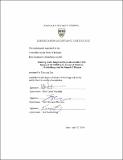| dc.contributor.advisor | Nasrallah, Laura | |
| dc.contributor.author | Lim, Eunyung | |
| dc.date.accessioned | 2019-06-13T11:33:04Z | |
| dash.embargo.terms | 2020-05-01 | |
| dc.date.created | 2018-05 | |
| dc.date.issued | 2018-05-14 | |
| dc.date.submitted | 2018 | |
| dc.identifier.citation | Lim, Eunyung. 2018. Entering God's Kingdom (Not) Like a Little Child: Images of the Child in the Gospel of Matthew, 1 Corinthians, and the Gospel of Thomas. Doctoral dissertation, Harvard Divinity School. | |
| dc.identifier.uri | http://nrs.harvard.edu/urn-3:HUL.InstRepos:40560143 | * |
| dc.description.abstract | "Let the little children come to me and do not hinder them, for the kingdom of God belongs to such as these." Based on the gospel accounts of Jesus's welcoming of little children, scholars have often presumed that early Christianity offered a new, uniform, and positive understanding of children against the backdrop of the ancient world. This dissertation challenges this exceptionalist approach to history by exploring imagery of the child used in the Gospel of Matthew, 1 Corinthians, and the Gospel of Thomas. In particular, it situates the selected texts within discourses and practices related to children in the Roman Empire and explores the cultural context in which childlikeness in each text should be understood.
For Matthew, the little child in Jesus's sayings represents the lowliest of the low in the Roman Empire, functioning to urge the readers to abandon their political and economic privileges. For Paul, "infant" is a term of invective against the Corinthians, whose infantile lack of proper speech and logos marks their unpreparedness for God's kingdom. For the Gospel of Thomas, the child functions as an exemplar of the primordial being in Gen 1:27 who exists without shame, for this gospel idealizes the child's sexually undeveloped body and liminal status in society.
This research demonstrates that there is no one understanding of children among these texts. The authors diversely deploy the child's marginalized status, intellectual incapability, and non-gendered state in these three focal texts while inviting the adult audience to envision an ideal believer entering the kingdom of God. These images of children concretize spiritual, moral, and social transformations to which believers must aspire-or which they should avoid, presenting the diversity of religious ideals among those who first used these texts. Their references to children cannot be used as evidence to support claims that early Christ followers were kind in their treatment of children. Exploring the developmental characteristics and social situations of children reveals that early Christ followers cast young children as theological imaginaries for expressing various conceptions of an ideal self who is worthy to enter God's kingdom. | |
| dc.description.sponsorship | New Testament and Early Christianity | |
| dc.format.mimetype | application/pdf | |
| dc.language.iso | en | |
| dash.license | LAA | |
| dc.subject | child | |
| dc.subject | childhood | |
| dc.subject | kingdom of God | |
| dc.subject | God's reign | |
| dc.subject | Gospel of Matthew | |
| dc.subject | 1 Corinthians | |
| dc.subject | Gospel of Thomas | |
| dc.title | Entering God's Kingdom (Not) Like a Little Child: Images of the Child in the Gospel of Matthew, 1 Corinthians, and the Gospel of Thomas | |
| dc.type | Thesis or Dissertation | |
| dash.depositing.author | Lim, Eunyung | |
| dash.embargo.until | 2022-05-01 | |
| dc.date.available | 2019-06-13T11:33:04Z | |
| thesis.degree.date | 2018 | |
| thesis.degree.grantor | Harvard Divinity School | |
| thesis.degree.grantor | Harvard Divinity School | |
| thesis.degree.level | Doctoral | |
| thesis.degree.level | Doctoral | |
| thesis.degree.name | Doctor of Theology (ThD) | |
| thesis.degree.name | Doctor of Theology (ThD) | |
| dc.contributor.committeeMember | Bazzana, Giovanni | |
| dc.contributor.committeeMember | King, Karen | |
| dc.type.material | text | |
| thesis.degree.department | New Testament and Early Christianity | |
| thesis.degree.department | New Testament and Early Christianity | |
| dash.identifier.vireo | | |
| dash.title.page | 2 | |
| dash.author.email | havenet@hotmail.com | |


